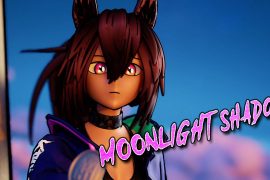This Friday, South African indie pop trio Beatenberg release their third album, ‘The Great Fire of Beatenberg,’ an upbeat return to their Mzansi roots, pulsing with the energy of house and the heartfelt sincerity of folk. Beatenberg’s Matt Field talks with Atwood Magazine about making art during times of crisis, the sacrificial role of the artist, and unexpected song origins.
Stream: “Wheelbarrow” – Beatenberg
‘The Great Fire of Beatenberg’ has a lot of spirit and intention in it and hopefully paves the way – not that the way needs to be paved, it can simply be grass – for putting music out with a generous spirit.
What is the point in making music if the seas are warming, the wildfires burning, and devastating conflicts all over the world?
This was the deep and probing question for the members of indie pop band, Beatenberg – particularly singer and guitarist, Matt Field – as they worked on their third album, The Great Fire of Beatenberg, set to be released this Friday, April 5th, 2024 via Leafy Outlook. The music was their answer, their offering. A miracle of brightness and connection. Field is right when he sings in “Gold Mine”: Some questions have an answer, others have a sound.
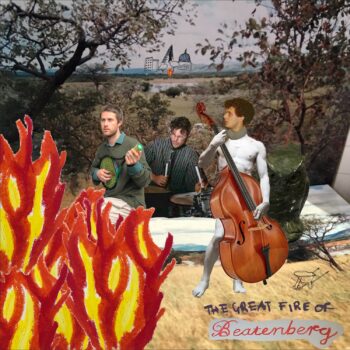
Six years since their second album, the band is as effortless and virtuosic as ever, traversing many genres, from the finger-picking and contemplative vocals of acoustic-folk to the enlivened Afro-beat of house to the bright synths and hooky guitar runs of pop. Full of their characteristic sonic and lyrical eclecticism, The Great Fire of Beatenberg ranges from playful love songs “Wheelbarrow” and “Eau De Toilette,” to sentimental ballads of “Bath Towels” and “I’ll Be There.”
It wouldn’t be a Beatenberg album without a self-reflexive lyrical strand, examining the act of songwriting itself in “3 Arts,” “Gold Mine,” and “Chorus of May.”
In many ways, The Great Fire of Beatenberg is both a departure and a return: emerging from the shadows of former glory (the extreme success of their debut album, The Hanging Gardens of Beatenberg) and returning to their Mzansi roots, reconnecting with childlike joy.
I first met the members of Beatenberg in 2022 at their performance in Rockwood Music Hall in New York City. I skipped my MFA’s evening class for it (worth it). After an incredible show, the first words I said to Matt Field were, “You’re wearing my twin brother’s watch!”
It was true – that was my twin’s watch. The year before, my twin had met Field at a solo show in London, where they discovered they had matching watches, so they traded. To make it even more sentimental, that night in Rockwood Music Hall marked three months since I had moved from Scotland to New York, living in a different country from him for the first time. After the show, I ended up getting dollar slices and a pint with Matt Field, drummer Robin Brink, and bass guitarist Ross Dorkin. All I can say is that their personalities lived up to the quality of their music.
With just a handful of weeks before the album release and some of their biggest headline shows to date in Amsterdam and London, Matt Field chatted with me over Zoom about The Great Fire of Beatenberg. Much like that night in 2022, he was refreshingly candid, insightful, and sincere, making sure to ask me how I was doing in Brooklyn, how my writing was going, and dropping some gems about poetic theory and Viktor Shklovsky’s “stoniness of the stone,” before launching into the official interview.
Below, Matt Field chats with Atwood Magazine about the fine balance between fun and work, returning to the band’s roots in South Africa, liberating songs from their finalised recordings, and some unexpected sources of songs for the new album.
— —
:: stream/purchase The Great Fire of Beatenberg here ::
:: connect with Beatenberg here ::

A CONVERSATION WITH BEATENBERG

Atwood Magazine: I’ll officially start by asking how you’re doing, are you in South Africa right now?
Matt Field: Yeah, I’m in South Africa. It’s nice, it’s been good to be near the sea. Swimming in the sea is good for me, and being close to family is nice. I’m going to be coming back to London soon because we’ve got a show next month, so I’m looking forward to that.
Congratulations on the album! It’s been a great boost of serotonin that I needed during the rainy days of the past few weeks. What’s the story behind the title, “The Great Fire of Beatenberg”?
Matt Field: There’s no particular story, it just felt like the thing that made sense. It was partly because we were in London – obviously, the Great Fire of London – but also because making the album felt a bit like, “Why am I even making an album? Everything’s kind of fucked up. Why does it matter, making an album?” Which I think lots of people are going through. And I don’t like to harp on about that feeling explicitly because it’s a bit tiresome, but it’s definitely a subtext to how I was feeling while making the album. Making music is always worthwhile, and I don’t question that, but it is more the trying to get people to care about music that becomes increasingly absurd when everything else is so fragile. But then on the positive side, fire is also warm and useful, a kind of energy. I hope that our record brings a warm energy. So, I guess it’s all those things involved in the concept of the fire. Partly dangerous, partly comforting.
I hear you grappling with that idea, the limits of music-making in “Gold Mine” and “3 Arts.” There’s such a good line in “3 Arts”: “Silence is better than half of this music.” It made me think of an interview I did with Abby Sage. When she was making her album, she did a music fast, didn’t listen to music at all.
Matt Field: I feel like I do that most of the time [laughs], I’m always fasting music. Well, that’s not true, I do listen to music but quite sparingly because music completely defines the emotional tone, as everyone knows with film music. If you have music on in a room, it completely defines how everything feels. Like I said in the line, most of the time I would rather just have neutrality. But there’s so much beautiful music, and I love it. I play and listen to music every day, but it’s a controlled way.
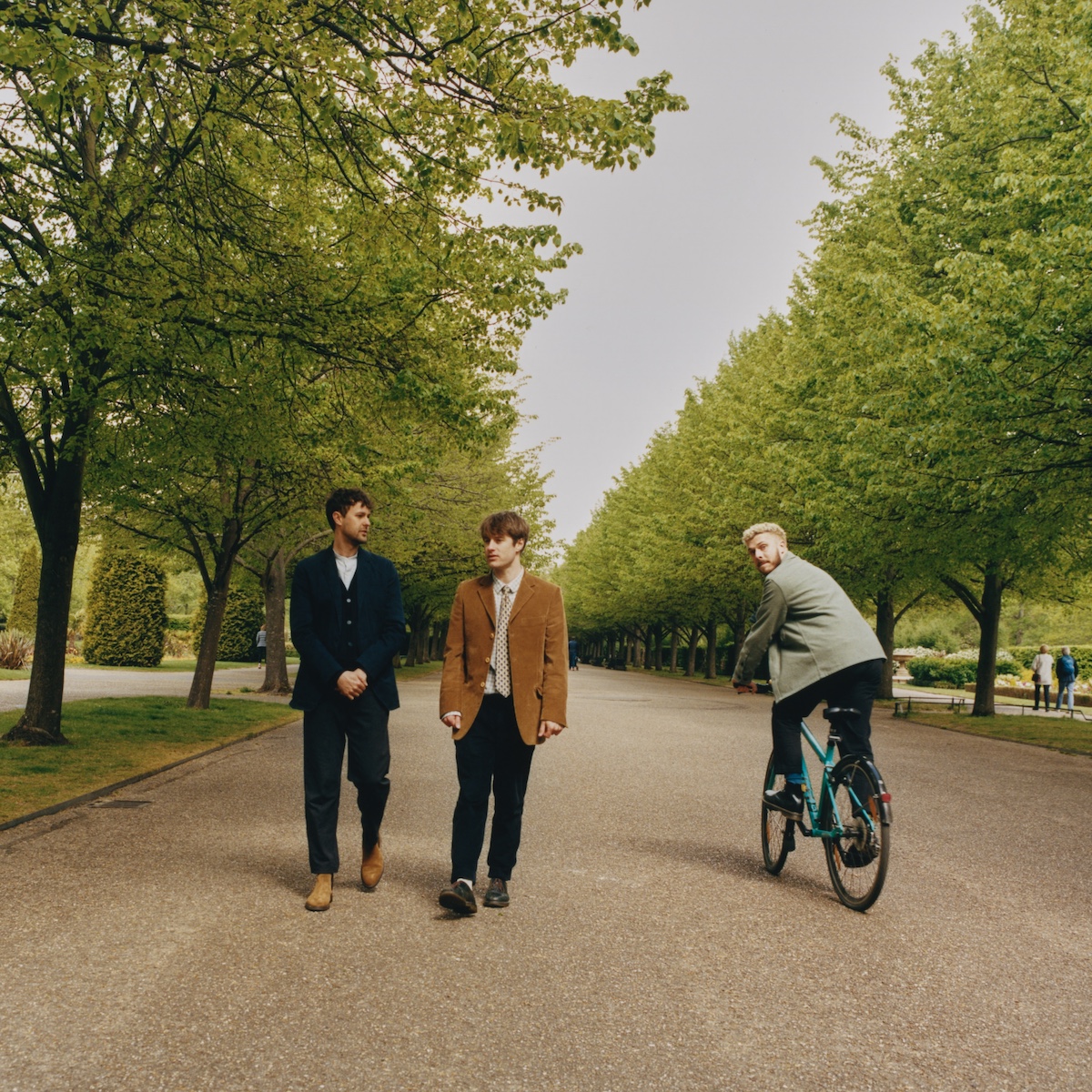
There’s a line you sang in “Gold Mine”: “Some questions have answers, but others just have a sound.” I feel like that’s your reply to this disillusionment that you have. There is something in sound, in music, that language can’t solve.
Matt Field: You’re right! Also, when music is your career – I don’t like saying that, but in reality, that is a thing – it’s a challenge to maintain a kind of childish joy which I can distinctly remember having effortlessly in the past. You have to consciously preserve that somehow, which everyone does in their own way. The other guys in the band do that. They love music so much in a very pure way, listening to more music than I do, keeping up with what’s going on. I’ve benefited from a lot of that, especially when we were together more. If we’re in the same space, they’d be introducing me to things or I’d be exposed to things that they’re playing, which I’ve been grateful for. It’s not always easy when it’s what you do, when you work on it. So, whether you choose to limit your music listening or whether you listen to a lot of it for pleasure, both are a way of making sure your music is not just a job.
How is it, working as a band, when you guys are based in different places? Ross is in London mostly, like you, but Rob is in Berlin.
Matt Field: It’s a relatively new set up, we’re still figuring it out. With this record, I did a lot of the work up front in Cape Town with another producer, did some recording sessions there, and then went to London where Ross and I sat together and finished them. That was a lot of work. Rob was involved at the very beginning with some of the writing in the initial sessions. It took a winding path because we started off with a certain bunch of songs with me, Rob, and Ross altogether in the studio, but only “Night Bus” from those sessions remained on the album. It ended up being a lot more archival stuff that we worked with and developed. So, it was a bit chaotic, not very streamlined. But it has it benefits because it means when we get together, it’s quite intentional. In the past, we’d all be hanging around in the city, feeling like we were just waiting for something to happen.
So, were most of the songs in this album from the archives?
Matt Field: Five or six of them are from older material, and then the other half are more recent. The first song, “Branches On A Tree,” was a collaboration that I did when I first moved to London a few years ago, so it’s not so old. The newest ones, written during the actual album process were, “3 Arts,” “Gold Mine,” and “Night Bus.” “When I Fall Asleep” is an old one. So yeah, it’s quite a range of things.
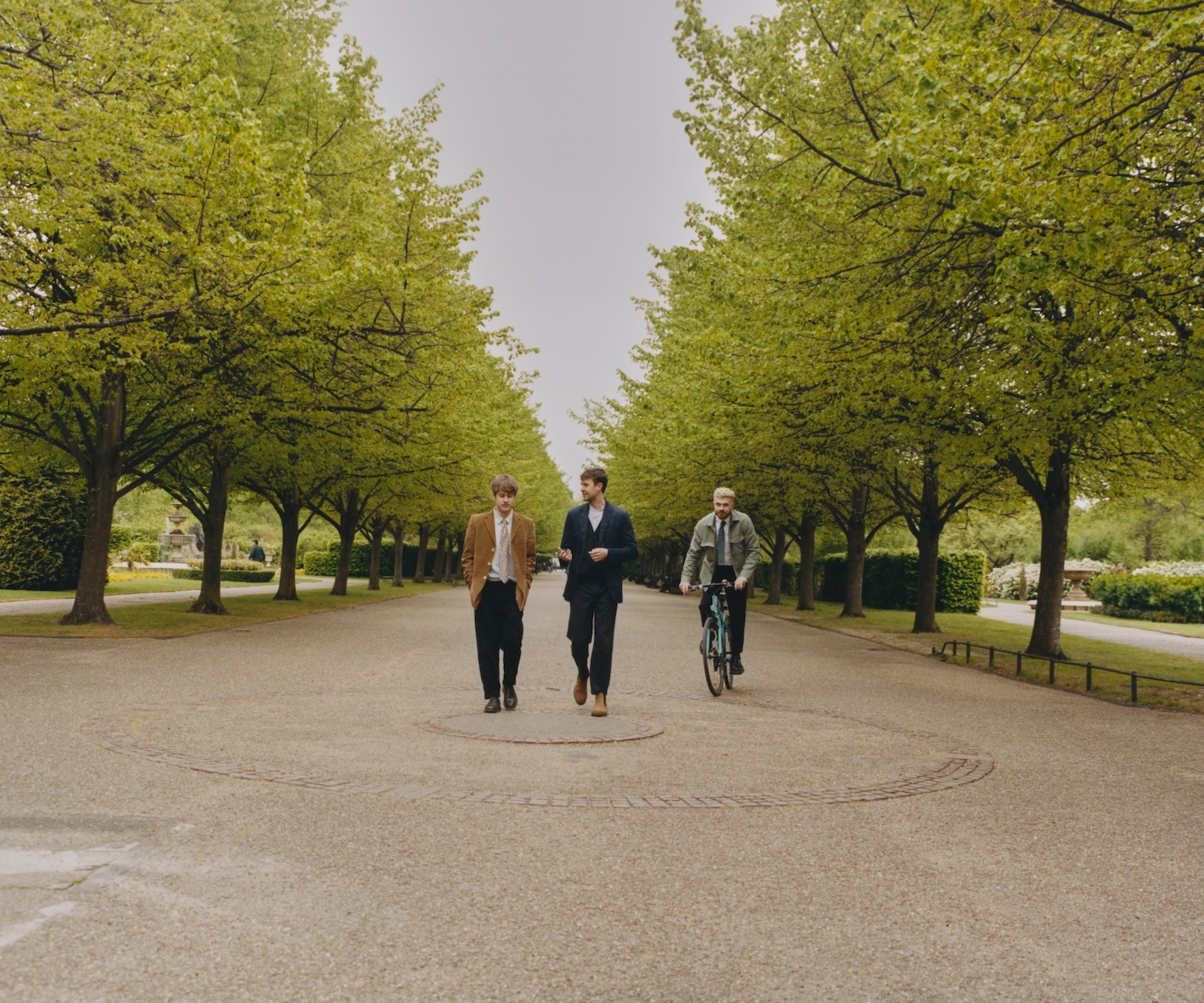
How do you feel this album relates to your past records?
Matt Field: I think the intention of it was a bit more outgoing than the middle record. I feel like because The Hanging Gardens was received with such enthusiasm and such unexpected success for us at such an early stage, we’ve kind of been labouring under that shadow. At least I feel like I have. Though, under the shadow is also a shelter, it’s also a good thing—once again, it’s a double-edged thing—but there is a sense of always trying to find that magical feeling that we had at that time. I’m also someone who slightly romanticises the past, so it wasn’t all fun at that time either, but the results felt transformative, and it felt like it was all worth it. Since then, I’ve struggled to feel that same feeling within the context of the band, which I think is partly because it was quite a high bar to set very early on. It’s not about the quality of the music so much as the way that it resonated with people. It was a lot of stuff to try and control and I didn’t really know how to handle that. That’s partly why we haven’t put out as much music as I would’ve liked. That’s also why the solo stuff for me has been really liberating because I can just do music without the feeling of having to reach back to some former glory.
So, I hope that this album moves through that whole feeling to say, “Yes we did a great album at that point. Now this is another album. You can’t really compare it.” It has a lot of spirit and intention in it and hopefully paves the way – not that the way needs to be paved, it can just be grass – for putting music out with a generous spirit.
I don’t know how to compare it to the other albums because it takes time. So much depends, in a very basic human way, on how people receive it, if people love it. The band has always had, as part of its aim, this desire to connect. We’re trying to talk to a bunch of people at once and we don’t want them to get bored or to stop listening – whereas with my solo stuff, it feels like I’m able to just have a conversation with one person and maybe it’s someone I know well, so I have more freedom to ramble on – which doesn’t mean that the band is going to deliver something that’s nonsense or even simplistic, but there’s a certain directness that we strive for.
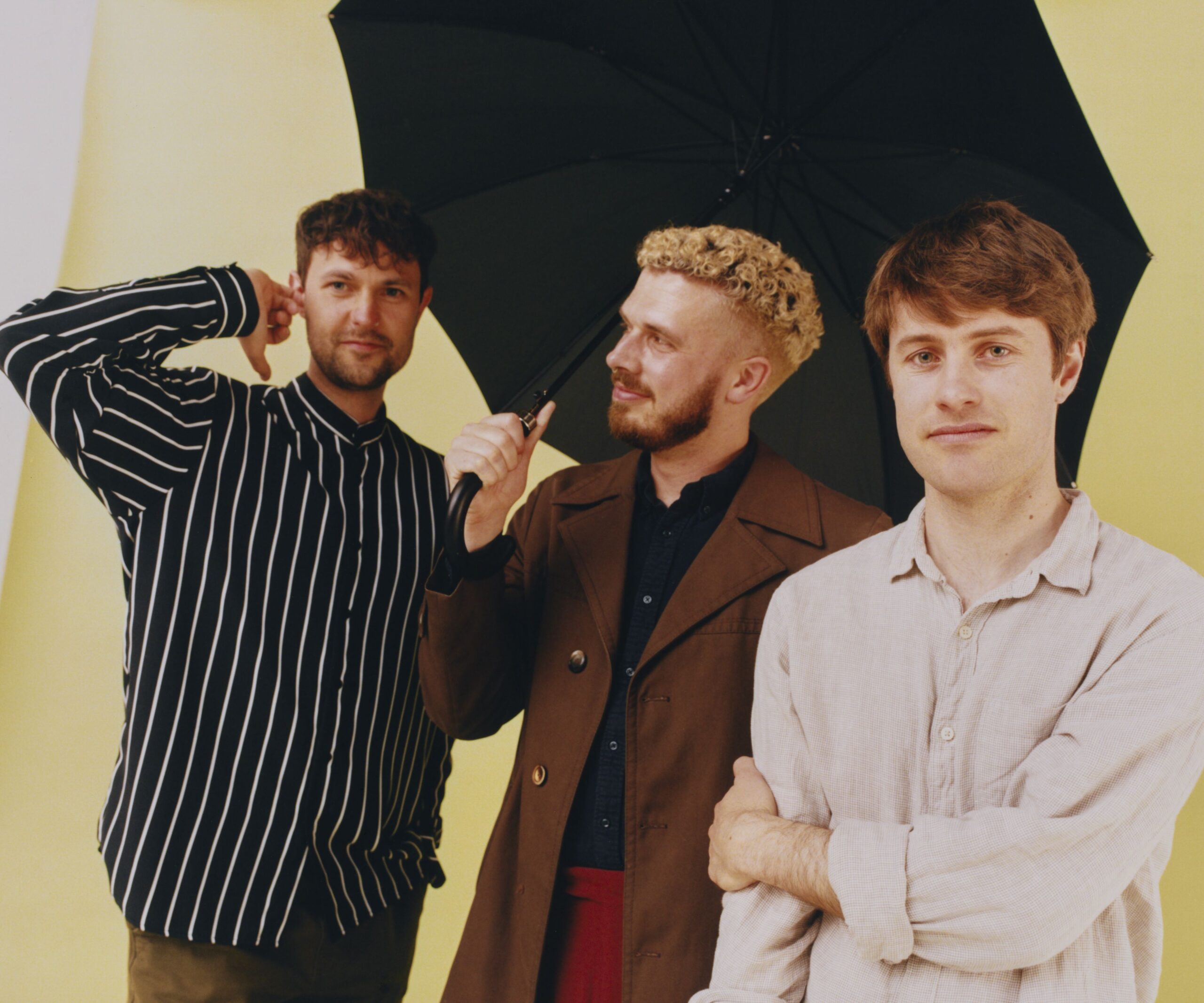
I hear that in the album. Moments of directness compared to abstractions in previous albums. Musically, the newest album feels very house or mbaqanga or amapiano. There’s a groove to it. Was that something intentional?
Matt Field: Yeah, I think we wanted to get back to some of that, to reconnect with our first experiences as a band in South Africa, but not in a way that’s too calculated. The first song of ours that ever did well was literally a collaboration with a house producer in South Africa [“Pluto – Live”]. With this album, there was an intention to reconnect with that aspect of our musicality. I’ve been thinking quite a lot about us moving away, both collectively and individually, and while individually we can all assimilate and live in different places, the band needs some grounding in its home and place of origin. That’s why I’ve stayed in Cape Town for so long. I’m working on some new stuff which might be band stuff. The narrative of us being a “London-based band” doesn’t really make sense for Beatenberg. We are from South Africa. It doesn’t need to be blazoned across the headline all the time, but it’s quite an important aspect of our identity.
The album feels playful and full of life. Did you have fun with any specific instrumentation in the album?
Matt Field: That’s good you felt that! Like I said, it was quite a laborious process and Ross had to do a lot of work tying up unfinished projects. So, it wasn’t all fun. But I think I trusted that even though we weren’t having fun every second, each song had moments that I felt really good about.
As a musician, it’s almost like you’re sacrificing your joy so that you can transfer it to the listener.
Matt Field: Yeah! And once you put out the song, you sacrifice your control over what it could be, because it’s up to other people to define what it’s about. I’ve actually thought that exact thing that you said, that you sacrifice your own enjoyment of the thing so that other people can enjoy it. Which is a weird one because no one enjoys it unless you enjoy it, so you have to do a fine balancing act, making sure you enjoy it for long enough and then only have a little bit of not enjoying it! You get over it and you enjoy them again. I’ve been doing social media for the band, which has me revisiting the songs and listening to them again, getting a sense of connection with the album after having finished it.
Is this the Instagram reels? I noticed that you’ve got this short story with Pat going on.
Matt Field: Yeah, Rob had this idea to do 30 posts during the month before our album comes out, to write a story and break it into little installments. I took a funny bit of process writing that I did while we were doing the album and fleshed it out. I did edits of our songs, slowing the songs down and adding things. It’s been quite cool because it’s allowed me to engage with the songs in a different way, using demos and stuff. I love trying to liberate songs from their finalised recordings to have more different versions of them available. It feels stifling sometimes to have one recording be the definitive version of the song.
I love trying to liberate songs from their finalised recordings to have more different versions of them available. It feels stifling sometimes to have one recording be the definitive version of the song.
What song are you most excited to share?
Matt Field: I’m quite excited to share the first one, “Branches on a Tree,” because it has a very vibrant energy. Also “Wheelbarrow” because it’s quite ridiculous and has a funny video that we’re going to pull out. So, that should be fun.
I found “I’ll Be There” particularly sweet. It feels so sincere, almost rare with the amount of irony and self-mocking that’s in your music.
Matt Field: Yeah, that story. I guess I can say this? I can say anything! That one was a song that was originally written for The Lion King. It was something I wrote and submitted to my publishing company at the time which never ended up getting used. But there was something I liked about it, the shape of it and the impact of it. A bunch of people who I played it to also felt strongly about it. I always thought I couldn’t put it out with the band because it’s not really the same as what we do, but then I was just like, “Why not!” I was going to rewrite the lyrics but then felt, “It’s fine! It is what it is.” So, it was in the spirit of directness. An experiment in being direct.
That’s so funny because when I was listening to that song with my brother, he literally said it reminded him of The Lion King!
Matt Field: Yeah, it’s Mufasa!
I’m excited to tell Ben about that.
Matt Field: Tell him I said hi as well. And “thank you” for his watch.
Yeah, I will! He also wanted to ask you about “Bath Towels.”
Matt Field: Yeah, it’s kind of similar to “I’ll be there” in that way. I feel it has this sentimental soppiness that I usually avoid. It was a “Cool, let’s write a song and see” kind of thing. It started off as a random writing session with Jonathan Quamby. He sent me a little piano thing and I added to it.
The lyrics came from a silly game called The Poetry Game that I played with a friend during lockdown. We had to write a bunch of titles and put them in a cup and then pull one out and each write a poem with that title in three minutes. One of those was “Bath Towels.” I sang the funny poem thing over the song, and that’s where the very beginning of the song came from. The rest of it I wrote to finish the song.
I love that creative process! Where does the autobiographical come into your song writing, if at all?
Matt Field: I find that often when I’m singing, I’m kind of singing to myself. The autobiographical comes in little images and stuff. It’s very rare that I have a song that’s from beginning to end documentation of a specific problem or relationship, not in such a direct way. It’s not so much about a specific thing that happened. It’s more my way of filing away a certain feeling.
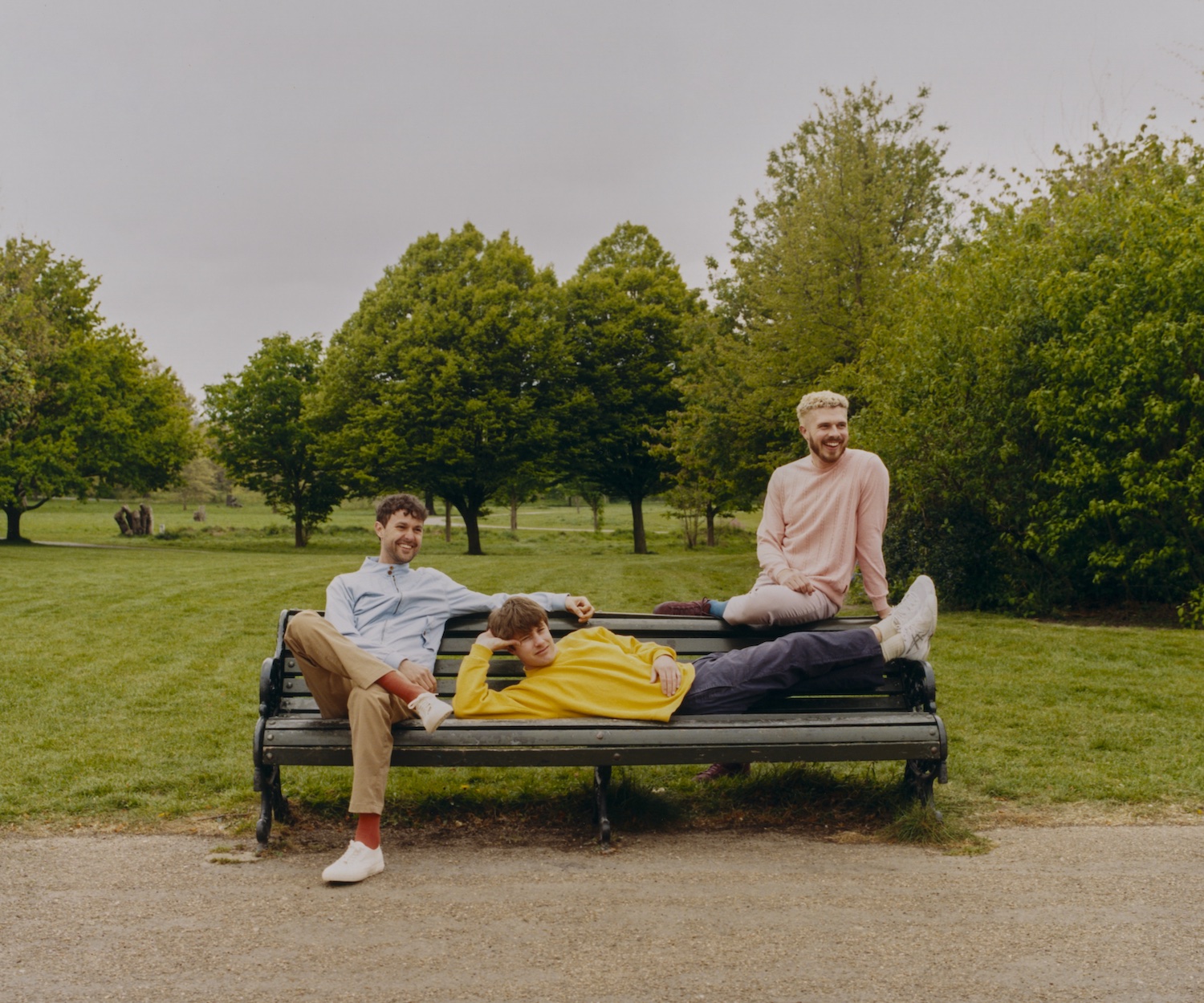
What’s your favourite part of the whole process, writing, releasing, or performing?
Matt Field: I usually say that it’s the writing, and I think that’s probably still true, but for this particular album, I’m going to say – I’m going to wish this – that the best part is playing the shows because that’s what’s coming up!
I believe that for you! What would you like people to take away from the album when they listen to the whole thing on April 5th?
Matt Field: I hope they find a point of connection with it. That they find some kind of personal angle to connect with in the songs, beyond it just sounding good. I hope that it can be something that people can trust in. “Trust” is a weird word, but sometimes I listen to music, and I don’t trust it, it feels like it’s coming from a weird place that’s too calculated or not quite true. I hope people feel not like that.
Well, I can say from my very subjective point of view that I definitely connected to the album, and it felt very earnest to me.
Matt Field: Thanks so much, that’s really amazing to hear. It’s already worth it then!
* * *
The Great Fire of Beatenberg is out on the 5th of April (pre-save here). Catch Beatenberg at one of their upcoming shows in Amsterdam and London!
— —
:: stream/purchase The Great Fire of Beatenberg here ::
:: connect with Beatenberg here ::
Watch: “Wheelbarrow” – Beatenberg
— — — —

Connect to Beatenberg on
Facebook, Twitter, TikTok, Instagram
Discover new music on Atwood Magazine
© Tami Aftab
:: Stream Beatenberg ::


 © Tami Aftab
© Tami Aftab